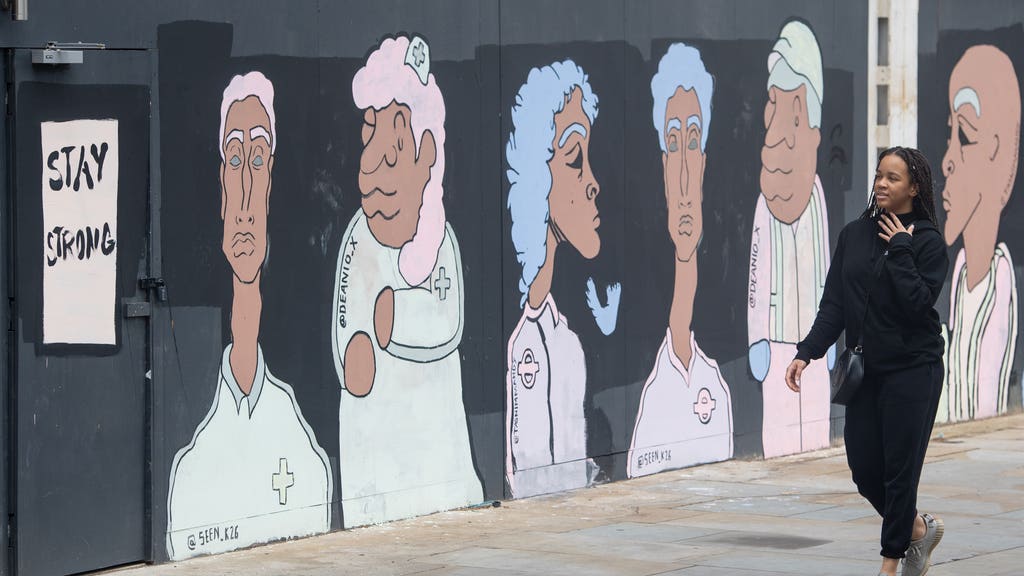NHS diversity hits record high while racism continues to plague staff, new study reveals
Number of staff from ethnic minority backgrounds working for health service reaches highest level but discrimination continues to blight their experiences, research finds

Your support helps us to tell the story
From reproductive rights to climate change to Big Tech, The Independent is on the ground when the story is developing. Whether it's investigating the financials of Elon Musk's pro-Trump PAC or producing our latest documentary, 'The A Word', which shines a light on the American women fighting for reproductive rights, we know how important it is to parse out the facts from the messaging.
At such a critical moment in US history, we need reporters on the ground. Your donation allows us to keep sending journalists to speak to both sides of the story.
The Independent is trusted by Americans across the entire political spectrum. And unlike many other quality news outlets, we choose not to lock Americans out of our reporting and analysis with paywalls. We believe quality journalism should be available to everyone, paid for by those who can afford it.
Your support makes all the difference.Diversity within the NHS is at an all-time high while discrimination continues to blight the experiences of ethnic minority staff members, according to an inaugural report on race in the health service.
Ethnic minority doctors (BME) are almost twice as likely as white doctors to have personally experienced discrimination at work from a manager, team leader or other colleagues, the Medical Workforce Race Equality Standard (MWRES) report found.
Moreover, the shortlisting and interview process discriminates against ethnic minority applicants for consultant appointments, the study said.
BME doctors also have a worse experience when it comes to examinations and regulation – including revalidation, referrals or complaints to the General Medical Council (GMC), and the Annual Review of Competence Progression, when doctors in postgraduate training are assessed each year.
This discrimination begins early in the career, with BME students less likely to attain a place in medical school than white students.
Commissioned by NHS chief executive Simon Stevens in the wake of the Black Lives Matter movement last summer, the report also indicated that ethnic minority doctors are more likely to have experienced harassment, bullying or abuse from staff in the last 12 months and are more likely to be investigated for complaints against them.
Meanwhile, the number of people from Black and ethnic minority backgrounds working for the NHS is the highest on record, according to the same study.
More than 53,000 doctors working in the health service were from an ethnic minority background, up by more than 9,000, a rise of around one-fifth, since 2017.
However despite this rise, ethnic minority medical doctors currently remain underrepresented in senior positions, including at consultant grade roles and in academic positions.
Prerana Issar, chief people officer for the NHS, said: “As part of our People Plan we have committed to support NHS organisations to make workplaces even more inclusive and compassionate, while it is also important that our partners in medical schools, Royal Colleges and other organisations take the steps required to improve experience of staff from a BME background
“While it is pleasing that ever increasing numbers of people from a BME background are choosing to become doctors and join our NHS, there is much more the NHS and other health bodies can do to improve representation and experiences for BME people.”
The British Medical Association (BMA) said the report showed the “devastating scale and breadth” of discrimination against ethnic minority doctors working in the NHS.
BMA council chair Dr Chaand Nagpaul said: “This data highlights the enormous gulf between the experiences of ethnic minority doctors compared to their white counterparts and the unacceptable level of discrimination that continues to permeate the medical profession.
“It has also shone a light on the devastating scale and breadth at which ethnic minority doctors are being unfairly disadvantaged throughout their career, from training to appointment to representation in senior roles and higher incidences of bullying and harassment.
“There is clearly a needed for systemic, widescale change across the entire NHS as the Government should be embarrassed and spurred to action by this report.”
The report carried a number of recommendations to tackle racial disparities within the NHS, including enhancing the leadership diversity of the royal colleges and arm’s-length bodies and undertaking research to identify effective methods to address differential attainment in training and assessments.
Join our commenting forum
Join thought-provoking conversations, follow other Independent readers and see their replies
Comments